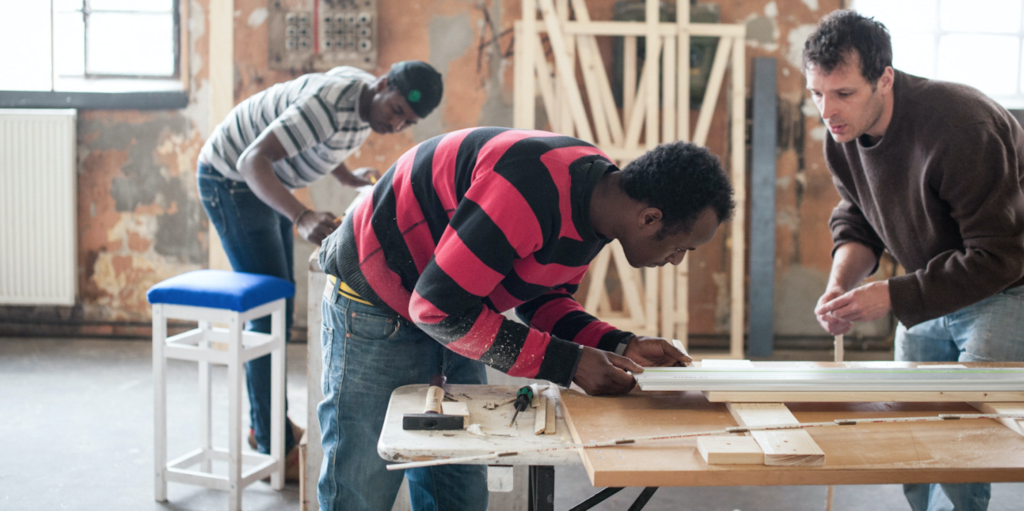Helping Where Governments Fail
The increasing importance of social entrepreneurship in overcoming social problems and structural barriers
The language of traditional business usually evolved around financial terms with the ultimate goal of any economic activity having been the maximisation of financial return on investment. However, in the last years there has been a noticeable shift away from financial to social return and the value creation for the many rather than a few. This transformation is greatly reflected in the uprise of social entrepreneurship around the world.
Even though social entrepreneurship is not a new concept, it gained increasing importance during the last decade. At this point, many ideas of early social entrepreneurship pioneers have evolved to commercialised and mainstreamed versions of the initial models e.g. car sharing or micro-finance. Distinct from conventional entrepreneurship, social entrepreneurship functions as a societal change agent.
As non-profit Ashoka puts it:
“Rather than leaving societal needs to the government or business sectors, social entrepreneurs find what is not working and solve the problem by changing the system […].” 1
This description emphasises perfectly the relevance of social entrepreneurs in overcoming social structural barriers in areas where governments cannot act sufficiently or flexibly enough or in some cases even cause the problem. Trying to tackle the most pressing social problems, it is little wonder that many initiatives of social entrepreneurship have emerged in the field of migration.
Coming from Berlin, a city whose face has changed drastically over the last two years due to the influx of refugees, I can observe first-hand the crucial role that social entrepreneurs play in alleviating the harsh realities of asylum seekers in Europe. There are many challenges, which need to be named when it comes to migration, that are evolving and changing constantly in the dynamics of global politics and societal movements. In order not to repeat its mistakes with guest workers in the 1960s, Germany now has to successfully manage a process of social integration spanning the facets of economic opportunities, personal fulfilment, recognition as well as individual identity. Societal incoherence, missing political actions and legal restrictions, however, pose barriers to this process, which often are best tackled in grassroots social entrepreneurship projects.
A great example of a company overcoming structural barriers is CUCULA, “The Refugees Company for Crafts and Design”. CUCULA describes itself as “an association, a workshop and an educational program all in one.” 2 Trying to find a pragmatic solution to counteract the state of helplessness of refugees upon arrival in Berlin, CUCULA is training refugees in the manufacture of premium design furniture. As income generation is illegal in situations in which asylum is not granted yet or a work permit is not issued, CUCULA invests the revenues from selling the furniture into educational measures including German language classes or legal advice in order for the refugees “to build their own professional future”. The clever concept of CUCULA opens new opportunities for refugees to make us of their abilities, receive compensation and acquire new skills without falling under the legal definition of paid labor.
As mentioned before, personal fulfilment, recognition and economic opportunities are essential factors for social integration. Nevertheless, creating situations of cultural encounters promoting direct social exchange and relationships with the local community is the fundamental base for integration. The social business “Über den Tellerrand kochen” uses cooking as the most accepted medium for cultural exchange and tries to introduce concrete individuals hidden behind the ambiguous topics of flight and asylum via recipe books and cooking classes 3. The business’ name is a pun playing with the German expression for “seeing beyond the end of your nose” but changing it to “cooking beyond the end of your nose”. In a fresh and uncomplicated manner they are creating a place of contact and a common future for locals and refugees and by doing so help to reduce stereotypes and fears.
With the proceeds from the cooking classes and the recipe books, the company is financially supporting the “Über den Tellerrand Community”. The open community of locals and refugees promotes different activities for cultural exchange such as sport events, creative workshops, barbecues etc. with great flexibility being left to the members of the community in creating ideas according to their interests and needs. In order to scale the project, the founders created a handbook on all steps necessary for implementing the project in other places and the project has seen great success being put into place in other German cities. The movement has even led to activities in different European countries such as Italy and the Netherlands. This collaborative and self-feeding evolutional process is one of the success factors of social entrepreneurship giving it advantage over traditional competition oriented business strategies and the rigidness of governmental intervention and solutions.
1 https://www.ashoka.org/social_entrepreneur
2 http://www.cucula.org/en/concept/
3 https://ueberdentellerrandkochen.de







.png)
].gif)
.png)
].png)
].png)
].png)
.png)
].png)
.png)
